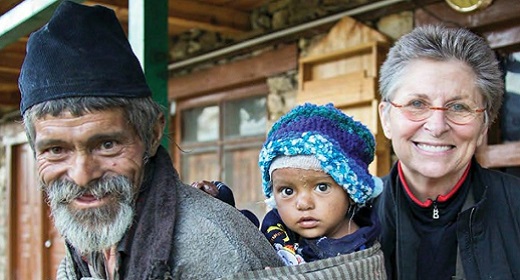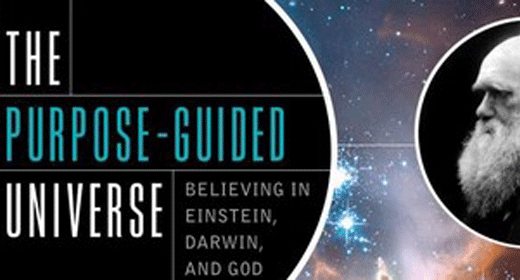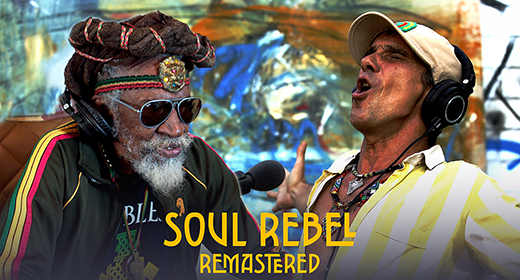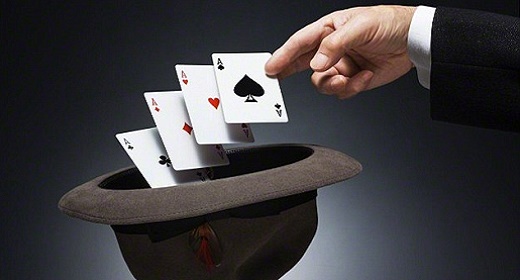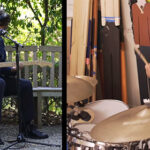Donna Quesada: I’m loving it. So, to take it further… We set ourselves up for success in a relationship when we can articulate those needs.
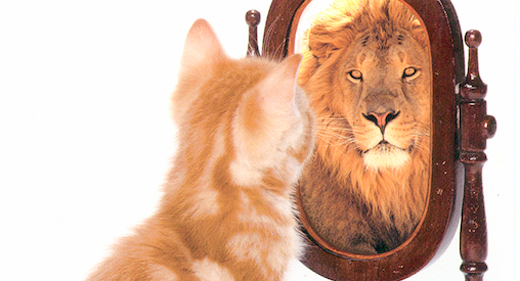
Sooner, rather than later. It sounds obvious enough, but it’s not. We don’t do that.
Dr. Georgina Cannon: Can I tell you another story? I had a couple in… probably six or eight months ago, now. She’s been coming. She was a senior executive at a big bank. She had been coming to me for a while. I was coaching her about being a woman in business, and all the hurdles she had to overcome. She said, “I wonder if you could talk to my husband. He’s just not romantic.” So, I said to her, “have you spoken to him?” She said, “yes, he doesn’t seem to get it.” I said, “bring him in.”
So, the two of them came in. And I said to him, first, “Welcome, tell me why you are here?” He said, “Because she told me to come.” I said to her, “Why are you here?” She said, “I told you, he’s just not romantic. I keep trying, and he won’t be romantic to me. I don’t feel he’s with me.” And he looked at her, and he said, “We’ve been married for 20 years. Every Friday since we got married, I bring you flowers. Isn’t that romantic?”
And she muttered, “I hate bloody flowers. They’re smelly. I just throw them out in three days.” And he went bright red and he said, “Why didn’t you tell me? I feel like a fool now.” And he got up and he walked out. I had to call him back.
DONNA: My goodness.
Georgina: And I said to her, “Why didn’t you say something?” She said, “I didn’t want to hurt his feelings.” “Oh great. Thanks very much. 20 years, every Friday night, I buy you flowers and you hate them.” So, look at the underlying stuff that’s going on there. She resents him coming home with flowers. He thinks he’s being a good husband.
DONNA: Unarticulated stuff.
Georgina: Where if they had that third circle, they would have been able to talk about it early on without making it your fault.
DONNA: And we simmer. We make ourselves suffer. I’m a victim and he’s not doing this or that and they never brought it out onto the surface.
Georgina: Never. 20 years.
DONNA: And this is our life. You know, you said something else. You used the word “snapshot.” This is so fascinating. What is a snap shot?
Georgina: I don’t know if you have family gatherings…
DONNA: Just had one last night.
Georgina: Okay. And brothers and sisters… They get together and revert back to being six and seven and eight years old. I’ve seen grown men punch each other on the shoulder like they did when they were 14. Or wrestle. And the parents speak to them like when they were children. When everybody gets together, it brings up that picture and those feelings of recognition. That’s why people hate selling the family home… because it’s a snap shot of the way things were and they felt comfortable, one hopes.
DONNA: So, it can be a sweet little thing of nostalgia, but it can also be a hinderance to our growth…
Georgina: Yeah. It’s major. When I do hypnosis, that is where I regress to. We regress back to figure out where they lost their self-esteem. Where they lost their voice. Where they felt not good enough.
DONNA: So, when I have a snapshot of someone as they were… now, I prevent us from acting in a new way with one another…
Georgina: That’s right. Because you treat them in the old way and they are instinctively inclined to respond the same way. Do you know about transactional analysis?
DONNA: No. Please tell me.
Georgina: Well, It’s about three parts of all of us. Parent, Adult, Child. So, Parents are authoritarian. I’m better than you. It’s the finger wagging part. The child is, I want it and I want it now and if I don’t get it now then I will find a way of getting it. And I don’t care about anything else. I want it. The adult is the considered thinker. So, if you have one person acting like a parent… let me tell you what I think you should do. The instinct is to behave like a child. The other person. Unless you recognize what is happening and you bring yourself up to adult.
DONNA: So, either one can take on the role of the adult?
Georgina: Absolutely. So, if there’s someone in your family, or any family gathering… any group, any meeting… who always needs to be rescued or doesn’t do what they are supposed to be doing… I’m sorry, I guess I didn’t… That is the child. Someone will step up to be the parent. Unless they are aware and they become the considered thinker. The parent will say, “Why don’t I meet with you afterwards and I’ll help you with that.” They might say, “You know Mary Ann, you really set us all back.” But, like a lecture. The adult might say “Why don’t you think about it and come back to us with an answer. Why don’t you leave and come back with an answer in ten minutes.”
DONNA: Seems like it goes hand in hand with the snap shot business because with the awareness, we can realize that we are still treating her as a child when she is an adult, and can make decisions on her own behalf. So, the awareness dislodges that and can be a healing factor in the relationship.
Georgina: And the interesting thing that I talk about in the book is that as parents get older, and not quite as capable in many ways, physically, or emotionally, or mentally, the roles sometimes reverse. And what happens is that sometimes the child becomes the parent. The child becomes the parent in a very bullying way. “Mother, I know what’s best for you.” That sort of thing. Rather than moving into adult.
DONNA: Gentle. Caring…
Georgina: Considered thinking. “What would you like to do, mom? Tell me. Let’s talk about this and let’s see what would work for you. I’ve got a suggestion, but you tell me what you want to do.” So, It’s very different. But it’s very interesting because once you are aware of that, you can catch yourself.
DONNA: I can see how important it would be to heal the relationship. And also, the self. This business of the self. This snapshot. I imagine that we take snapshots of ourselves, as well.
Georgina: (Laughs) I’m going to do a confession here. I was making a stew the other night and I went into my cupboard. And I was thinking I don’t have any tomato sauce. And I looked, and I have six cans of tomato sauce. I won’t tell you what else I have duplicates of. Now, I grew up hungry… starving and had a pretty rough childhood. So, I store food, unknowingly. Unaware. My friends know about it. But I’ve got cans and cans of food. And every time I go shopping, I have more.
DONNA: Well, I’m the same. My grandmother was that way and I grew up with her. You never throw food away. So, I can relate very much to that. What would be an example of how we take a snap shot of ourselves that prevents us from letting go of old issues? And I imagine that this is such a cause of our own suffering and how we hold on to trauma in life.
Georgina: One of the ways of finding out what you are holding on to is by imagining what you would like to be. Would you like to feel pretty? Would you like to feel not shy? What would you like to be? How would you like to feel? What is your ideal you? And I’m not talking about money or glamour or anything like that. I’m talking about the inside. What is it? Where and how would you feel the most comfortable? The most comfortable in your own skin?
Once you get there, and that takes some thought… Not everybody does that. And not everybody thinks it’s possible. Then you say okay, then what part of me is not clueing in to that? You look at your values. Let me look at the strengths and perceived weaknesses I might have. Let me see what is missing here. So, it’s a self-awareness because I believe that this is a gem with many facets. I believe that we are all kind and we are all unkind. I believe we are all stupid and we are all smart. I believe we are everything. Every single piece of anything we can be, we are. It’s just the piece we choose to use every day that makes us who we are that day.
DONNA: And other people bring out different facets.
Georgina: Or we allow them to. You hear people say, “Every time I hear her voice I want to scream.” Every time, something something, I get irritable. Well, you don’t have to. It’s your choice. Is that making sense?
DONNA: It does make sense and it reminds me of something else you said about a course correction.
Georgina: Yes, GPS.
DONNA: Can you explain that? What is a course correction?
Georgina: Well, you know when you are driving, and you’ve got your GPS on, and your Ways on? And you decide to go another way and it says “course correct?”
DONNA: Because you make a wrong turn or something…
Georgina: Yes. And you are not following directions. We can do the same. We are, for instance, at a company that we love being there, but our boss is a pain in the butt. They keep giving us stuff at six o’clock at night, or whatever. And we do nothing except whine and complain about it. We have to make a course correction. And that course correction is “shall I leave the company?” “Should I adjust my attitude to my boss?” Say, “that is the way that person is?” I need to talk to them about it. I need to get home or come to some arrangement. Or just put up with it. As long as I’m learning and in six months’ time, re-evaluate and leave. We have to own ourselves.
DONNA: So, that moment that we take responsibility, I’ve made a course correction?
Georgina: That’s right. That moment we said, “I recognize what is going on. It’s not them interrupting my journey. It’s me allowing it to interrupt my journey. What am I going to do about it?” I say to clients a lot, that my job is to move you from victim to hero. And if you want to come along for the ride that is great, but I can’t care about this more than you do. So, I’ll work with you and that means that you take responsibility.
DONNA: What advice would you give to a young couple starting out?
Georgina: (Takes out the Circles book) I’m serious. Do the contract. Let’s make a contract for six months and see how you are doing. If you run up against issues then let’s do it every three months. If you’ve got a big thing around money. A big thing about boys’ night out or girl’s night out, or whatever. Let’s re-evaluate in three months. But this is the contract you have agreed to with each other. That’s where I start, with the contract, for sure.
Donna: I feel like maybe young couples are so behind the rose-colored glasses that they feel maybe it’s not romantic. They feel like you only do stuff like that when you are an old married couple that has problems and they don’t want to speak the language of problems so soon, or something like that.
Georgina: That’s interesting. It depends on the questioning. So, when I get this young couple in front of me and I say, “Tom, tell me, do you have a lot of friends?” “Oh yes, and they like your wife?” “Oh, they love her.” “Do you ever go out with your friends?” “Oh yeah, we have guy night, we go out three nights a week.” “So, Mary, how do you feel about that?” They never talk about that, so you see this. (Sigh). “Well, I know he likes it.”
Donna: It’s there. It’s just there.
Georgina: So, I say, “Can we talk about that?” “How do you feel, Tom, if we talk about that because although Mary loves you being a musician, and that’s who she married, there needs to be some work around that. Are you ok with that?” There is always something, unspoken.
Donna: Let me switch gears for just a moment. We’ve been talking about relationships. How do we balance our own individual awakening with our commitment to relationships, but also our commitment with global issues? These days we are all very concerned about the environment and we have just been through a pandemic. How do we balance our own growth, or own spiritual growth, with the work that we do toward others and towards bigger causes?
Georgina: I believe that if you live your truth that you take that everywhere you go. Even people who were in concentration camps. Even the refugees that come over on the boat. There is always somebody who cares for somebody. There is always somebody that takes from somebody. Back to that splinter of the light again. It’s all the same stuff. It’s how we manifest our soul in our behavior. In interaction. In recognition. In awareness of the impact, we have… everybody we touch. Everything we say has energy. Everybody we touch… we leave a fingerprint. Our fingerprint is on them. A hug, a handshake. Everything. We impact everything every step of the way. When I have people coming into the clinic… not that I have a clinic… It closed down. And the guy would usually say, “You’re a self-made man,” So, I’d say, “I’m sorry, I disagree. Let’s start right there. Nobody is self-made.” “What do you mean? I did da da da.” “Fine, but when you go and turn on your water in your bathroom, someone has clarified that water and made it okay for you. When you turn on your lights, someone is taking care of the electricity to make sure it goes on.”
Donna: It’s everything.
Georgina: It’s everything. Everything we touch. Everything we see. I look around my office and I see paintings on the wall. All this energy from other people that have warmed my energy… surrounded me with life and creativity. Color. Yeah. Look at you… behind you… the pictures.
Donna: Those are my paintings.
Georgina: Are you kidding? Well, then you are warming my heart with your art. Fantastic.
Read and watch Part 3 Here: Awaken Interviews Dr. Georgina Cannon – Pt 3 – The Soul Needs To Evolve
Read and Watch Part I Here: Awaken Interviews Dr. Georgina Cannon – Pt 1 – Awakening Is the Recognition that We Are All Connected To Everything





